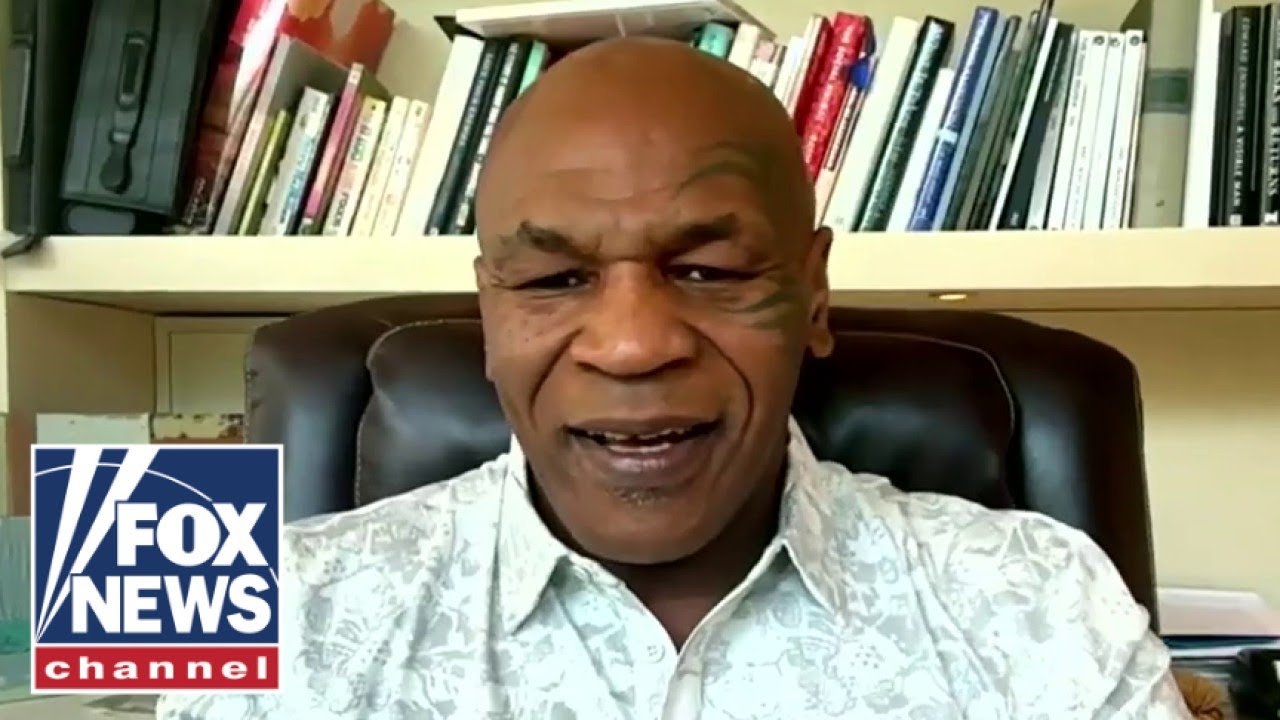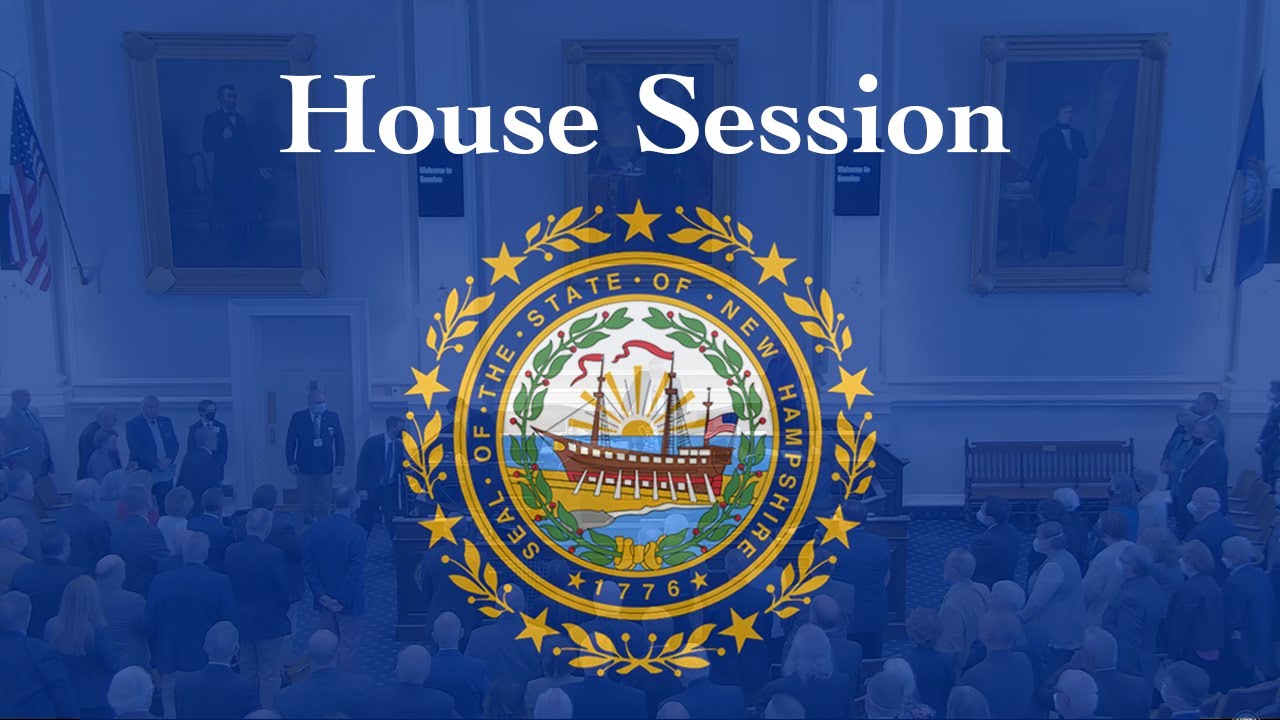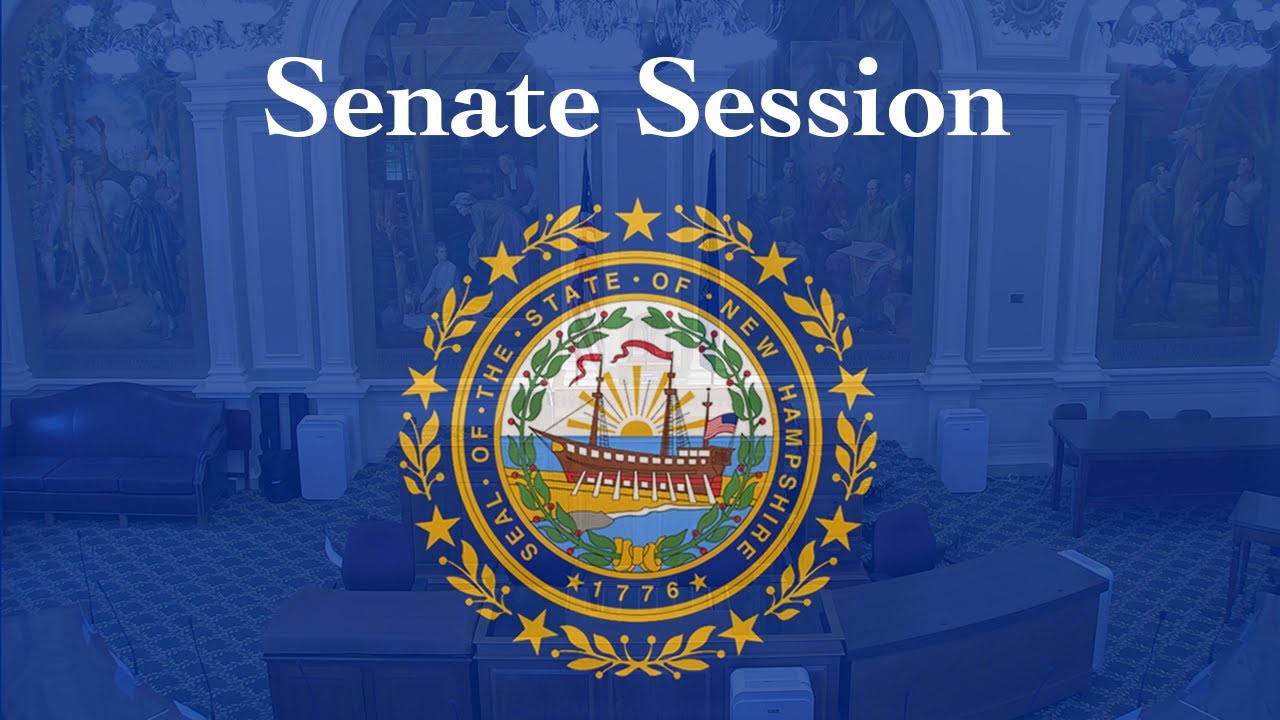featured
What’s Changed Since Connecticut Legalized Adult-Use Marijuana 4 Years Ago?
Published
10 hours agoon

Not only have recreational sales increased, but medical purchases have made up less than half of the state’s cannabis market retail sales since May 2023.
By Sasha Allen, CT Mirror
July 1 marks four years of legalized recreational cannabis use in Connecticut, and with legalization came major changes to the medical marijuana market.
A law enacted in 2012 allowed the purchase and use of cannabis for medical reasons only. But in 2021, the state legalized recreational use for everyone 21 and older. Statewide recreational retail sales began in January 2023, and by May 2023, recreational sales accounted for the majority of state cannabis retail sales, a trend that has continued to today.
Connecticut was the 19th state to legalize recreational marijuana.
Under state law, anyone 21 or older without a medical card is allowed to possess up to 1.5 ounces of cannabis flower or other cannabis product equivalent in public and up to 5 ounces in their private residence. Medical cardholders can posses up to 5 ounces of cannabis on their person.
Not only have recreational sales increased, but medical purchases have made up less than half of the state’s cannabis market retail sales since May 2023.
Connecticut was the 19th state to legalize recreational marijuana.
Both medical and recreational dispensaries sell similar products, but medical users who are using the product to treat “debilitating medical conditions” aren’t subject to the cannabis tax. Medical users can also buy other products that recreational users cannot, including capsules, tablets, pills, sublinguals and suppositories.
Medical users are also not subject to potency restrictions, while recreational cannabis is currently capped at 30 percent THC for cannabis flower and 60 percent THC for concentrate products other than vapes. However, as of October 1, 2025, the cap for raw flower will be raised to 35 percent THC and 70 percent THC for concentrates other than vapes.
The cannabis tax is dependent on both the product and the amount of THC; edible products are taxed the most heavily per milligram of THC and plant products the least. For an eighth of flower that’s 15 percent THC, for the tax currently sits at around 9.4 percent, fluctuating based on product pricing. Edibles are subject to a tax of $0.0275 per milligram of the product’s total THC content.
Medical card holders are required to apply for renewal annually, which involves a consultation fee with health care providers that can range from $100 to $350 for users 18 and older. For users under 18, users must have a condition specified by the legislature for medical usage as well as parental consent and a caregiver arrangement.
Because cannabis usage is federally illegal, medical card holders are prohibited from purchasing firearms, and everyone applying for a firearm is required to disclose their usage of cannabis and other federally controlled substances. Federal law bars all cannabis users from owning a firearm.
Each hybrid or recreational cannabis retailer registered in Connecticut must pay the cannabis tax, which varies by product. The state cannabis tax brought in $21.3 million in state revenue for FY 2024.
Overall, the sales tax—along with state sales tax, municipality sales tax and licensing and conversion fees for dispensaries—brought in $49.4 million in cannabis revenue for FY 2024.
While there are dozens of products on the market, usable cannabis flower, which is just the dried plant, brings in the most sales across the medical and recreational markets. Overall, in May 2025, recreational cannabis retail sales were $18.7 million. Medical retail sales were $6.6 million.
There is only one exclusively medical dispensary in the state. The rest of the dispensaries have transitioned and cater to both the recreational market and the medical market as hybrid dealers, or just the recreational market.
Statewide, there are 36 recreational dispensaries and 35 hybrid dealers. However, the number of dispensaries fluctuates. Back in January 2023, only nine hybrid dispensaries existed. Numbers from around February 2025 showed 64 dispensaries in the state—eight fewer than are currently open.
This article first appeared on CT Mirror and is republished here under a Creative Commons Attribution-NoDerivatives 4.0 International License.
Photo courtesy of Philip Steffan.

Author: mscannabiz.com
MScannaBIZ for all you Mississippi Cannabis News and Information.
You may like
-


How to make dry sift hash: a solventless masterclass
-


Marijuana Industry Lawsuit Has ‘Zero Chance’ Of Being Heard By Supreme Court, Former DOJ Lawyer Says (Op-Ed)
-


Mike Tyson Tells Trump To Reschedule Marijuana And Free Prisoners In Fox News Appearance
-


New Hampshire Bill To Ease Psilocybin Penalties Advances Through House But Is Tabled In Senate
-


Honoring LGBTQIA+ Cannabis Trailblazers: A Pride Month Reflection
-


Anacostia Organics: Cannabis with care in the capital
featured
Marijuana Industry Lawsuit Has ‘Zero Chance’ Of Being Heard By Supreme Court, Former DOJ Lawyer Says (Op-Ed)
Published
47 minutes agoon
June 30, 2025
“The odds are always against the Supreme Court hearing any particular case, but the cannabis industry’s approach in this one absolutely ensures it won’t happen.”
By James B. Mann, former U.S. Department of Justice Tax Division deputy assistant attorney general
A much-hyped lawsuit meant to challenge federal cannabis law has officially flamed out. The First Circuit Court of Appeals recently issued a unanimous opinion rejecting Canna Provisions v. Garland (also known as Canna Provisions v. Bondi), a case widely seen as the cannabis industry’s best shot at attacking federal prohibition through the courts.
The case was intended to strike down cannabis’s Schedule I classification under the Controlled Substances Act and eliminate the crushing tax burden imposed by Section 280E of the Internal Revenue Code. Instead, it ended in a resounding defeat—with precisely zero chance of being heard by the Supreme Court.
Section 280E is one of the most punishing burdens facing the legal cannabis industry. Originally enacted in the 1980s to prevent drug traffickers from deducting business expenses, 280E blocks cannabis operators—even fully legal ones under state law—from writing off ordinary costs like rent, payroll or equipment. The result is that cannabis businesses often pay two to three times more in federal income tax than they would if they sold any other legal product.
The cannabis industry’s battle against 280E is now being waged across all three branches of government. Congress is being lobbied for legislative relief. The executive branch is being pressured to reschedule cannabis so 280E no longer applies. And the judiciary has been pulled in through legal challenges like Canna Provisions.
The lawsuit was filed with much fanfare in October 2023—it was funded by many of the large cannabis companies and used a big-name law firm, Boies Schiller. The goal was to overturn a 2005 Supreme Court decision, Gonzales v. Raich. In Raich, the Court upheld the Controlled Substances Act as applied to cannabis grown solely for personal medical use within one state.
Boies Schiller essentially made two arguments—first, that the realities of the cannabis market had changed so much since 2005 that Raich was outdated and wrong, and second, that Congress had passed legislation proving cannabis no longer belongs in Schedule I. The First Circuit wasn’t having any of it. The 3-0 opinion pointed out that even though the facts had changed, they had not changed enough to make Congress’s classification irrational as part of a comprehensive regime of drug regulation (the relevant test).
The court also dismissed the claim that federal legislation proved cannabis should be removed from Schedule I. The opinion noted that the funding restrictions were limited in their effect and applied only to medical cannabis (Canna Provisions and the other plaintiffs are adult-use sellers).
Interestingly, the opinion repeatedly criticizes the lack of logical development of Canna Provisions’s arguments, going so far as to dismiss one of the most important arguments for “lack of development.”
Supreme Court justices vote on what cases to hear, and it takes four votes to put a matter on the docket. In a lawsuit like Canna Provisions, there is no split among the circuit courts for the Supreme Court to resolve. That means the only real path to a hearing was to convince the justices that the case presented an urgent federal legal question.
There is one justice still on the bench from Raich—Justice Clarence Thomas. His dissent in that case, and his opinions in other Commerce Clause cases, emphasize his belief that federal power has stretched far beyond the Framers’ intent. Justice Sandra Day O’Connor’s dissent also argued that the federal law intruded on core state powers.
Bizarrely, Boies Schiller never raised the arguments made by either Thomas or O’Connor. It’s unclear who they thought would vote to hear the case based on the strategy they pursued.
And while oral argument isn’t usually a decisive factor in appellate decisions, it didn’t help that David Boies was completely shredded by the three-judge panel. (The First Circuit has publicly available recordings of oral arguments.) Boies was once one of the most prominent litigators of his generation—there’s even a chapter in a Malcolm Gladwell book about his mind and how he overcame dyslexia. But at 84, he was unprepared for basic questions and clearly no longer at his peak.
The odds are always against the Supreme Court hearing any particular case, but the cannabis industry’s approach in this one absolutely ensures it won’t happen. More broadly, Canna Provisions underscores the complexity of using litigation to advance federal cannabis reform. While carefully crafted legal challenges may still have a role, this case failed to present the type of arguments or posture that could realistically have drawn the Supreme Court’s interest.
James B. Mann is a tax attorney whose practice centers on cannabis taxation and complex business tax planning. A Harvard Law and Columbia MBA graduate, he previously served as deputy assistant attorney general in the U.S. Department of Justice’s Tax Division, led tax-debt advisory at Société Générale, and represented major cannabis clients—including arguing the Harborside case in the Ninth Circuit.
Photo elements courtesy of rawpixel and Philip Steffan.

Author: mscannabiz.com
MScannaBIZ for all you Mississippi Cannabis News and Information.
featured
Mike Tyson Tells Trump To Reschedule Marijuana And Free Prisoners In Fox News Appearance
Published
2 hours agoon
June 30, 2025
Retired boxer Mike Tyson has delivered his message to reschedule, and ultimately legalize, marijuana to President Donald Trump on one of his most-watched TV networks: Fox News.
Days after leading a letter alongside other professional athletes and celebrities promoting cannabis reform that was sent to Trump on Friday, Tyson joined FOX & Friends on Monday where he made made the case for rescheduling marijuana, expanding clemency and allowing licensed cannabis businesses to access the banking system.
“Cannabis is in the same category as heroin. How do you categorize it with heroin?” he said. “Anybody that ever smoked cannabis knows there’s no comparison and that it’s just ridiculous.”
Tyson reiterated his support for moving marijuana from Schedule I to Schedule III of the Controlled Substances Act (CSA)—a reform that was initiated under the Biden administration but has since stalled at the Drug Enforcement Administration (DEA). And he also stressed the economic opportunity of changing federal marijuana laws for state-licensed businesses.
“There’s over 500,000 people that can’t get loans in the cannabis business alone, and that’s just so ridiculous,” Tyson, who owns the marijuana company Tyson 2.0, said. “It’s such a great income for the country. And I just can’t see it. It’s ridiculous.”
He added that advocates are “also working on clemency, because there’s people that still in prison—been in there for 15 years, got enormous amount of time and ridiculous sentences—for cannabis.”
Tyson also argued that “the first mistake that we’re making is categorizing [marijuana] as a drug. It’s not a drug. It’s a medicine.” And he said his personal experience with cannabis is a testament to that, pointing out that he was “going crazy” as a young adult before he started consuming marijuana for its therapeutic benefits.
Asked whether he feels the plant should be fully legalized nationwide, Tyson said “100 percent yes,” in large part because “the time and the sentences” that people criminalized over cannabis have received are “just totally ridiculous.”

The boxer cited the criminal justice reform advocate and former federal cannabis prisoner Weldon Angelos as an example. Angelos helped organize the letter to Trump, who pardoned him over a cannabis-related offense during his first term.
Tyson, along with Acting U.S. Attorney for the District of New Jersey Alina Habba, also recently toured a Drug Enforcement Administration (DEA) lab. And during his Fox News interview, he echoed points from that tour, asserting that illicit operators from China and Mexico are “filling our cannabis with fentanyl and pesticides and all that stuff, and it’s just killing human beings.”
Throughout the talk, Tyson stressed that he feels “cannabis is not a drug.”
“No one’s ever [overdosed from cannabis,” he said. People drink. How many people die drinking? You put a bunch of people that don’t like each other in the room and give them alcohol and they kill each other. You give them some cannabis and they start taking selfies or whatever.”
The interview comes about a week after Trump’s first pick for attorney general in the current administration, former Rep. Matt Gaetz (R-FL), reiterated his own support for rescheduling cannabis—suggesting in an interview with a Florida Republican lawmaker that the GOP could win more of the youth vote by embracing marijuana reform.
On marijuana rescheduling, the president did endorse the policy change on the campaign trail. But he’s been publicly silent on the issue since taking office. Gaetz said last month that Trump’s endorsement of a Schedule III reclassification was essentially an attempt to shore up support among young voters rather than a sincere reflection of his personal views about cannabis.
A survey conducted by a GOP pollster affiliated with Trump that was released in April found that a majority of Republicans back a variety of cannabis reforms, including rescheduling. And, notably, they’re even more supportive of allowing states to legalize marijuana without federal interference compared to the average voter.
—
Marijuana Moment is tracking hundreds of cannabis, psychedelics and drug policy bills in state legislatures and Congress this year. Patreon supporters pledging at least $25/month get access to our interactive maps, charts and hearing calendar so they don’t miss any developments.![]()
Learn more about our marijuana bill tracker and become a supporter on Patreon to get access.
—
Meanwhile, Trump picked former Florida Attorney General Pam Bondi (R) to run DOJ, and the Senate confirmed that choice. During her confirmation hearings, Bondi declined to say how she planned to navigate key marijuana policy issues. And as state attorney general, she opposed efforts to legalize medical cannabis.
Adding to the uncertainty around the fate of the rescheduling proposal, Trump’s nominee to lead DEA, Terrance Cole, has previously voiced concerns about the dangers of marijuana and linked its use to higher suicide risk among youth.
During an in-person hearing before the Judiciary Committee in April, Cole said examining the rescheduling proposal will be “one of my first priorities” if he was confirmed for the role, saying it’s “time to move forward” on the stalled process—but again without clarifying what end result he would like to see.
DEA recently notified an agency judge that the proceedings are still on hold—with no future actions currently scheduled. The matter sat without action before an acting administrator, Derek Maltz, who has called cannabis a “gateway drug” and linked its use to psychosis. Maltz has since left the position.
Amid the stalled marijuana rescheduling process that’s carried over from the last presidential administration, congressional researchers recently reiterated that lawmakers could enact the reform themselves with “greater speed and flexibility” if they so choose, while potentially avoiding judicial challenges.
Image element courtesy of Super Festivals.

Author: mscannabiz.com
MScannaBIZ for all you Mississippi Cannabis News and Information.
featured
New Hampshire Bill To Ease Psilocybin Penalties Advances Through House But Is Tabled In Senate
Published
3 hours agoon
June 30, 2025
The New Hampshire Senate last week voted to scrap compromise legislation that would have lowered the state’s criminal penalty for first-time psilocybin possession while also creating mandatory minimum sentences around fentanyl.
A bicameral conference committee struck an agreement on the bill, SB 14, earlier this month, returning it to both chambers for sign-off on the deal. While the House initially rejected the proposal Thursday, representatives returned from their lunch break, took up the bill again and passed it on a 185–182 reconsideration vote.
On the Senate side, however, Sen. Bill Gannon (R)—who briefly sat on the conference committee before being replaced by Sen. Daryl Abbas (R)—moved on the chamber floor that the measure be tabled, effectively killing it. The motion passed on a voice vote without any discussion.
The bill’s psilocybin provisions were championed by Rep. Kevin Verville (R), who has said that while he wasn’t a fan of the mandatory minimums for fentanyl, he saw the bill as an acceptable compromise to reduce first-time psilocybin offenses from the current felony charge down to an unspecified misdemeanor.
In email to Marijuana Moment after the Senate’s tabling vote, Verville called the move “highly regrettable,” asserting that senators “chose to protect and stand with the fentanyl dealers that are destroying NH families and communities, and killing our citizens, while simultaneously rejecting a common sense compromise in limited quantity, first offense possession of psilocybin penalty to a misdemeanor from the current felony charge.”
Nevertheless, the representative wrote: “This experience has invigorated me, not discouraged me.”
“Next year you can expect to see both psilocybin penalty and medical bills come forward,” he added.

Earlier this year, the Senate scuttled a separate, more ambitious psilocybin measure from Verville, HB 528. As passed by the House, it would have removed criminal penalties for a first-time possession offense, making it a $100 civil violation.
At one point, a Senate panel attached language to that bill that would add mandatory minimums around fentanyl and fatal overdoses. At the time, Sen. Tara Reardon (D) asked colleagues if the idea was that “we’re trading” the House-favored move to reduce psilocybin penalties in exchange “for enhanced penalties” on fentanyl.
“One might say that, yes,” replied Gannon, chair of the Senate committee.
If passed, HB 528 would have make second and third psilocybin offenses Class B misdemeanors, carrying fines of up to $500 and $1,000, respectively, but with no risk of jail time. Fourth and subsequent offenses would remain classified as felonies.
Sales and distribution of the substance would still be illegal; the reform would apply only to “a person 18 years of age or older who obtains, purchases, transports, possesses, or uses psilocybin.”
As originally introduced by Verville, the legislation would have completely removed penalties around obtaining, purchasing, transporting, possessing or using psilocybin, effectively legalizing it on a noncommercial basis. However a House committee amended the bill before unanimously advancing it in March.
Verville said in his email Friday that the legislative discussion around psilocybin, though it didn’t yield tangible reform this session, “is evidence that the Overton Window relative to psychedelics has shifted.” In other words, lawmakers—and the public at large—are increasingly open to psychedelics reform as reasonable, practicable policy.
“It is clear that New Hampshire is ready to reject the arcane psychedelics policies of the 1960s, and embrace modest, but common sense reform,” he said, adding that there “is a growing, albeit unofficial, psychedelic caucus in NH and beyond. I assure you that I am far from finished on these matters.”

Despite SB 14‘s origin as a bill to stiffen criminal penalties around fentanyl and overdose deaths, advocates of drug prohibition cheered the bill’s demise this week.
The groups Foundation for Drug Policy Solutions (FDPS), led by anti-drug crusader Kevin Sabet who also founded Smart Approaches to Marijuana (SAM), said on social media that it “APPLAUDS NEW HAMPSHIRE FOR TABLING SENATE BILL 14.”
Sabet, FDPS’s president, said both Republicans and Democrats “stood up for public health” in tabling the bill.
“New Hampshire’s prison’s are not filled with mushroom felons,” he said in a statement; “the stepdown in severity would have addressed what amounts to a non-issue. Kudos to the legislators who understood that normalizing psilocybin through reduced penalties sends a wider message: These dangerous substances are somehow safe or therapeutic.”
As passed by the Senate earlier this session, SB 14 would have established mandatory minimum sentences for certain fentanyl offenses. But a House committee added language to reduce the penalty for psilocybin, making it a misdemeanor rather than a felony to possess up to 3/4 of an ounce of the psychedelic—though on the first offense. Subsequent offenses would remain felonies.
“Any subsequent offense after the first would still be a felony offense,” Abbas noted at a later conference committee hearing on the bill.
He noted that the first possession penalty would be an unclassified misdemeanor, meaning prosecutors would have discretion to charge the conduct as either a Class A or Class B misdemeanor, the latter of which does not include jail time.
The proposed fentanyl penalties, meanwhile, would affect manufacturing, selling, transporting or possession of the substance with the intent to sell. Those activities involving 20 or more grams would carry a 3 1/2 year mandatory minimum prison sentence, while 50 or more grams would mean at least seven years behind bars.
Prior to striking a deal on the proposal, the bicameral conference committee initially agreed to give up on the plan. But following the replacement of Gannon and others, the panel moved forward on the compromise bill.
Verville noted that the conference committee report on the bill was “signed off by three Republican senators, and five Republican House members…making this entire affair a Republican led effort.”
So far this session, the Senate as a whole has been broadly hostile to drug reform proposals. While a number of bills have cleared the House of Representatives—including a renewed effort to legalize adult-use marijuana—virtually all have gone on to die in the Senate.
As for cannabis-related legislation, the state Senate in early May narrowly voted to table a House-passed marijuana legalization bill, effectively ending this year’s effort to end cannabis prohibition in the “Live Free or Die” state.
The chamber voted 12–10 to table the measure, HB 198, from Rep. Jared Sullivan (D). It had previously passed the House of Representatives in March, but weeks later the Senate Judiciary Committee recommended the proposal be rejected.
If enacted, the bill would have legalized noncommercial possession and use of marijuana among adults 21 and older, permitting adults to have up to two ounces of marijuana flower, 10 grams of concentrate and up to 2,000 milligrams of THC in other cannabis products.
Sullivan’s proposal was a pared-down version of a legalization measure lawmakers nearly passed last year, under then-Gov. Chris Sununu (R), but it did not include that bill’s regulated commercial system—a controversial issue that ultimately derailed the earlier effort.
Verville, meanwhile, introduced a legalization bill that would have removed restrictions around marijuana but not established a state regulatory system.
Recent state polling suggests New Hampshire residents strongly favor cannabis legalization. In late April, a Granite State Poll, from the University of New Hampshire’s States of Opinion Project, found 70 percent support for the reform, including majorities of Democrats, Republicans and independents.
“Support for legalization has increased slightly since June 2024 (65%) and remains considerably higher than in the mid-2010s,” it added. “Majorities of Democrats (84%), independents (72%), and Republicans (55%) support legalizing marijuana for personal use.”
Last legislative session, New Hampshire lawmakers nearly passed a bill that would have legalized and regulated marijuana for adults—a proposal that then-Gov. Chris Sununu (R) had indicated he’d support. But infighting over how the market would be set up ultimately scuttled that measure. House Democrats narrowly voted to table it at the last minute, taking issue with the proposal’s state-controlled franchise model, which would have given the state unprecedented sway over retail stores and consumer prices.

Author: mscannabiz.com
MScannaBIZ for all you Mississippi Cannabis News and Information.

How to make dry sift hash: a solventless masterclass

Marijuana Industry Lawsuit Has ‘Zero Chance’ Of Being Heard By Supreme Court, Former DOJ Lawyer Says (Op-Ed)

Mike Tyson Tells Trump To Reschedule Marijuana And Free Prisoners In Fox News Appearance
New Hampshire Bill To Ease Psilocybin Penalties Advances Through House But Is Tabled In Senate

Honoring LGBTQIA+ Cannabis Trailblazers: A Pride Month Reflection

Anacostia Organics: Cannabis with care in the capital

Doctors Group Launches Campaign Empowering More Healthcare Professionals To Join Drug Decriminalization Movement

Star signs and cannabis strains: July 2025 horoscopes

Using Hemp Flour And Oil Can Make Gluten-Free Baked Goods With ‘Optimal’ Texture And ‘Significant’ Nutrition, Study Shows

10 Alabama CBD Stores, Vape Shops Raided; 4 Hemp Businesses Sue State

Four Arrested for CBD Distillate Theft Valued at $3.6M

ALEA raids 9 stores across Alabama for allegedly violating state marijuana laws

What’s Changed Since Connecticut Legalized Adult-Use Marijuana 4 Years Ago?

Police: Man caught with 250 pounds of marijuana

California Cannabis Excise Tax Hike Takes Effect as Consumers Face Mounting Cost-of-Living Crisis

First legal cannabis dispensary to open in Genesee County

Judge Dismisses Lawsuit Seeking to Invalidate Nebraska Medical Cannabis Reforms

Mike Tyson leads athletes in push for marijuana reform: 'Cannabis is not a drug'

Rand Paul Says GOP Congressman’s Hemp Ban Bill Would ‘Completely Destroy’ The Industry

Cannabis legalization could help GOP win young voters, former congressman says (Newsletter: June 30, 2025)

Alabama Expected to Issue Medical Cannabis Dispensary Licenses Soon

Mississippi AG Says Intoxicating Hemp Products Are ‘Prohibited’ Under State Law

RAW Rolling Papers Founder Buys High Times

Jones Soda Co. Sells Mary Jones THC Beverage Brand

Alert: Department of Cannabis Control updates data dashboards with full data for 2023

Connecticut Appoints The US’s First Cannabis Ombudsperson – Yes there is a pun in there and I’m Sure Erin Kirk Is Going To Hear It More Than Once!

5 best CBD creams of 2024 by Leafly

Free delta-9 gummies from Bay Smokes

EU initiative begins bid to open access to psychedelic therapies
New Study Analyzes the Effects of THCV, CBD on Weight Loss

Mississippi city official pleads guilty to selling fake CBD products

Curaleaf Start Process Of Getting Their Claws Into The UK’s National Health System – With Former MP (Resigned Today 30/5/24) As The Front Man

May 2024 Leafly HighLight: Pink Runtz strain

5 best autoflower seed banks of 2024 by Leafly

Horn Lake denies cannabis dispensary request to allow sale of drug paraphernalia and Sunday sales | News

Discover New York’s dankest cannabis brands [September 2024]

Press Release: CANNRA Calls for Farm Bill to Clarify Existing State Authority to Regulate Hemp Products

Nevada CCB to Accept Applications for Cannabis Establishments in White Pine County – “Only one cultivation and one production license will be awarded in White Pine County”

Local medical cannabis dispensary reacts to MSDH pulling Rapid Analytics License – WLBT

6 best CBD gummies of 2024 by Leafly

The Daily Hit: October 2, 2024

5 best THC drinks of 2024 by Leafly

5 best delta-9 THC gummies of 2024 by Leafly

Weekly Update: Monday, May 13, 2024 including, New Guide for Renewals & May Board meeting application deadline

People In This State Googled ‘Medical Marijuana’ The Most, Study Shows

Thailand: Pro-cannabis advocates rally ahead of the government’s plan to recriminalize the plant

PRESS RELEASE : Justice Department Submits Proposed Regulation to Reschedule Marijuana

Press Release: May 9, STIIIZY and Healing Urban Barrios hosted an Expungement Clinic & Second Chance Resource Fair
Trending
-

 California Cannabis Updates1 year ago
California Cannabis Updates1 year agoAlert: Department of Cannabis Control updates data dashboards with full data for 2023
-

 Breaking News1 year ago
Breaking News1 year agoConnecticut Appoints The US’s First Cannabis Ombudsperson – Yes there is a pun in there and I’m Sure Erin Kirk Is Going To Hear It More Than Once!
-

 best list11 months ago
best list11 months ago5 best CBD creams of 2024 by Leafly
-

 Bay Smokes1 year ago
Bay Smokes1 year agoFree delta-9 gummies from Bay Smokes
-

 Business10 months ago
Business10 months agoEU initiative begins bid to open access to psychedelic therapies
-

 cbd1 year ago
cbd1 year agoNew Study Analyzes the Effects of THCV, CBD on Weight Loss
-

 Mississippi Cannabis News1 year ago
Mississippi Cannabis News1 year agoMississippi city official pleads guilty to selling fake CBD products
-

 Breaking News1 year ago
Breaking News1 year agoCuraleaf Start Process Of Getting Their Claws Into The UK’s National Health System – With Former MP (Resigned Today 30/5/24) As The Front Man

